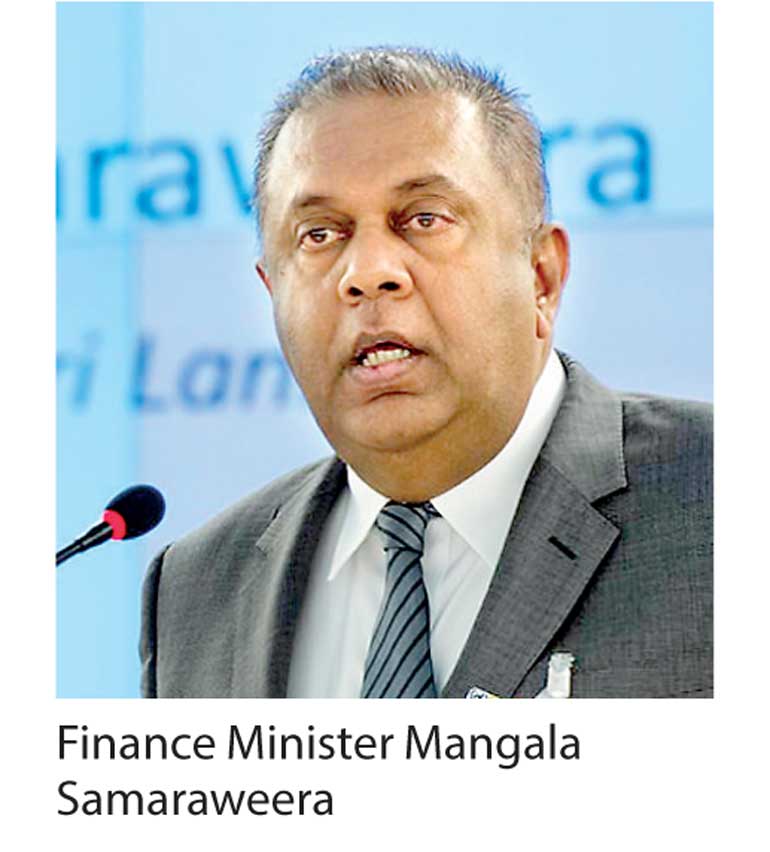Tuesday Feb 24, 2026
Tuesday Feb 24, 2026
Friday, 6 October 2017 00:00 - - {{hitsCtrl.values.hits}}

By Nisthar Cassim
Ten more State-Owned Enterprises (SOEs) have been identified to reform themselves for better financial discipline, transparency, accountability and performance by signing Statements of Corporate Intent (SCI) next year.
The Cabinet this week approved this major step in public sector reforms as well as encompassing other SOEs going forward on a proposal made by Finance Minister Mangala Samaraweera.
The 10 SOEs which have been identified for 2018 are the Ceylon Transport Board, Urban Development Authority, Lanka Sathosa, Milco, National Livestock Development Board, State Pharmaceutical Corporation, State Timber Corporation, Lankaputhra Bank, Central Engineering Consultancy Bureau and the State Plantation Corporation.
These institutions will join five others that were the first to sign SCIs earlier this year – the Ceylon Petroleum Corporation, Ceylon Electricity Board, National Water Supply and Drainage Board, Airport and Aviation Services Ltd. and Sri Lanka Ports Authority. The exercise is part of the IMF’s support program for Sri Lanka and is aimed at enhancing oversight and financial discipline.
The objectives of SCI are to establish a transparent framework for strategic performance oversight on SOEs; define the working relationship between the Government and SOEs and allow adequate managerial and operational autonomy of SOEs; hold SOEs’ boards and management accountable for performance based on Key Performance Indicators; and identify and cost SOEs’ non-commercial obligations, for which the Government is ultimately responsible.
The SCIs encompass the SOE’s mission, high-level objectives, and multiyear corporate plan; capital expenditure and financing plans; and explicit financial and non-financial targets.
They also include the description and cost of non-commercial obligations (NCOs) such as utility subsidies to strengthen transparency and fiscal accountability.
The expected results of the SCIs are to operate SOBEs as budgetary independent institutions in a commercially viable manner, to improve the practices of corporate governance, establish the use of efficient financial management practices, strengthen human resource management, change the operational culture and reengineer the business process and ensure efficient and effective business operations and generate a reasonable Return on Investment.
Sri Lanka currently has about 200 public enterprises representing a substantial share of the nation’s economic activity. With technical assistance from the IMF, the Government last year identified outstanding obligations of the central government and SOEs totalling Rs 1.36 trillion in end-2015. These included (i) outstanding obligations of the central government totalling Rs. 58 billion, which were settled during 2016 and (ii) those of four SOEs (CPC, CEB, SriLankan Airlines and the Sri Lanka Port Authority) totalling Rs 1.2 trillion. Although some SOEs are profitable and performing well, collectively they represent a risk to public finances (either directly or through the state banks which fund the largest SOEs). A comprehensive strategy for SOE reform and a more rules-based approach to financial management is being developed.
According to Finance Ministry sources, the revenue of 55 State-Owned Business Enterprises (SOBEs) to the GDP in 2016 was around 13.3% compared to the 12.3% in 2015. The Government’s policy is to ensure a strategic reorientation of SOBEs with a view to improve their financial position and service delivery meeting the demands of the rapidly growing economy.
The Government plans to publish non-commercial obligations in the annual budget for 2018 and 2019 and is looking at strengthening the legal framework for the governance and oversight of SOEs, including through the establishment of coherent financial regulations for SOEs on governance, accountability and funds management.